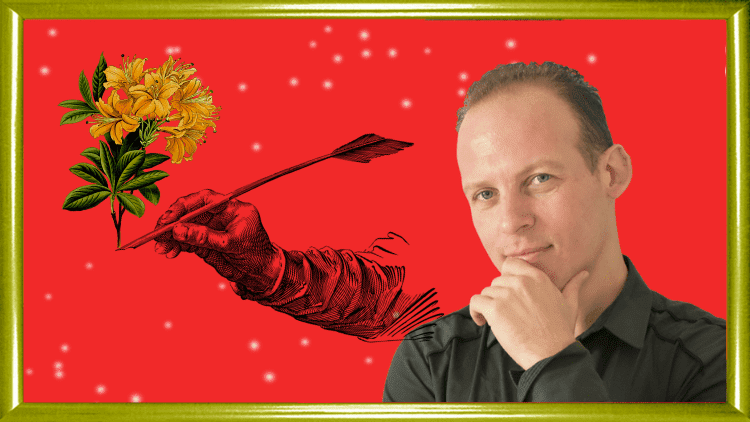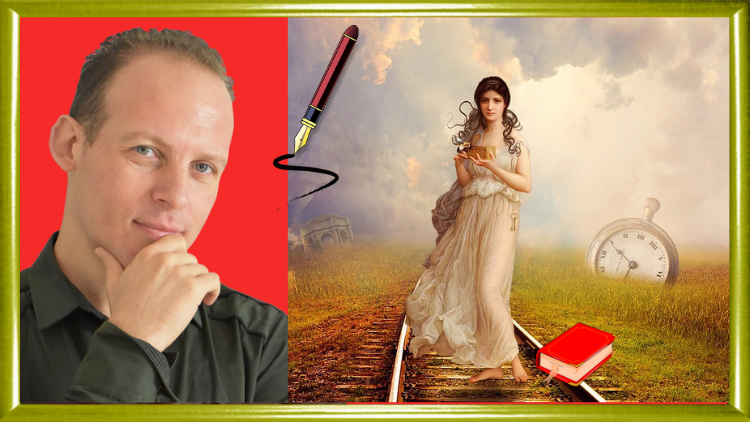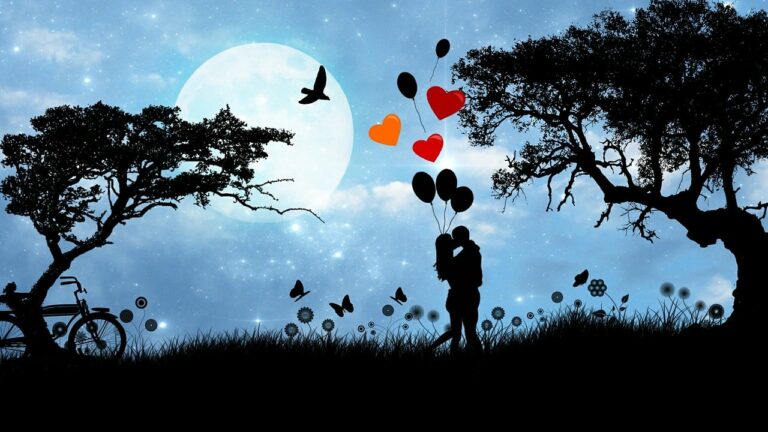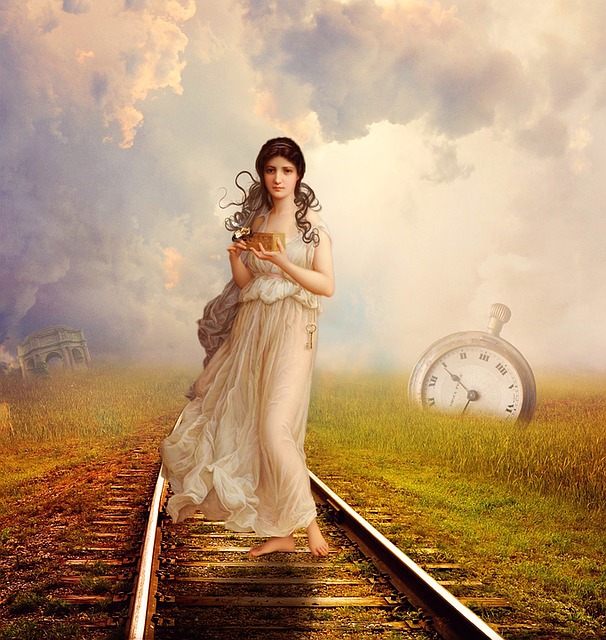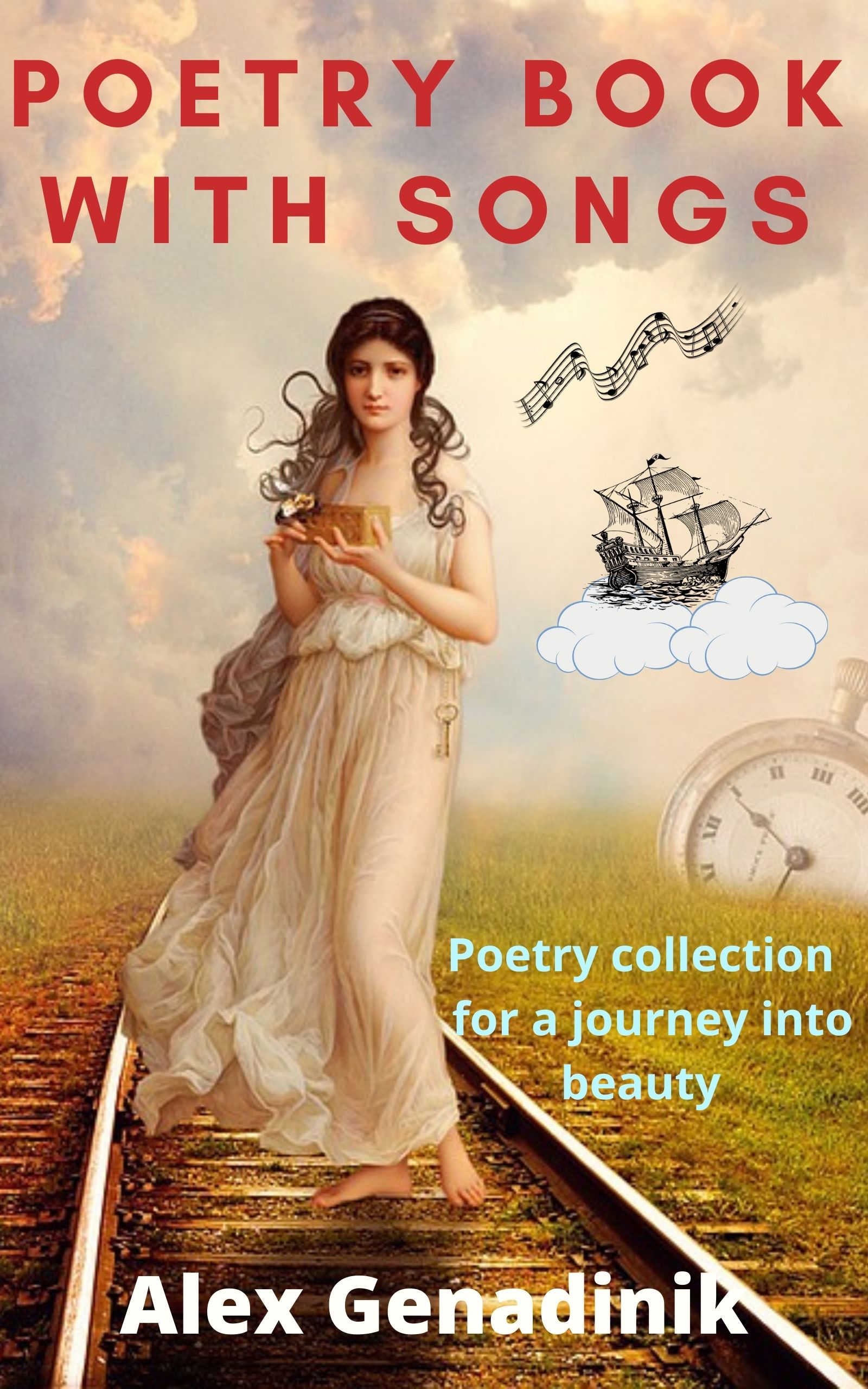Discover the Best New Poetry Books of 2023

Picture this: you’re nestled in your favorite reading nook, the scent of an autumn breeze filters through the room, and you’re ready to dive headfirst into a journey woven with nothing but words. Step into the vibrant literary landscape of 2023 as we reveal our curated selection of must-read poetry books that will undoubtedly set your heart ablaze. From heart-wrenching tales of love and loss to thought-provoking pieces exploring the tapestry of human emotion, these poetic masterpieces are bound to leave an indelible mark on your soul. So, buckle up and prepare to be swept away by the spellbinding power of verse.
Our website has curated a list of recently published poetry books that have received critical acclaim and positive reviews. Some highly recommended titles include “The Hurting Kind” by Ada Limón, “Time is a Mother” by Ocean Vuong, “Customs” by Solmaz Sharif, and “Hyperphantasia” by Sara Deniz Akant. These books explore themes ranging from mental illness to ecological awareness to the power of language.
Best New Poetry Books of 2023
Poetry lovers, 2023 promises to be an exciting year for new releases in the genre. From established poets pushing boundaries to emerging writers making their debut, there’s no shortage of exceptional poetry collections to look forward to this year.
One anticipated release is “The Weight on My Tongue” by Laila Nur, a spoken-word artist and activist known for her powerful performances addressing social justice issues. Her debut collection deals with similar themes, exploring race, gender, and identity with raw emotion and unflinching honesty.
Another upcoming release is “A Garden of Broken Glass” by Jackson Selena-Cramer, a finalist for the National Poetry Series. Their collection offers a stark yet beautiful reflection on trauma and healing through vivid imagery and evocative language.
For readers seeking poetry that pushes boundaries of form and structure, look no further than “Fragments of a Dream Sequence” by Chelsea Hernandez. Her experimental writing style blends poetry and prose to create a dreamlike narrative exploring themes of memory and identity.
In “The Art of Longing,” Chen Chen uses humor to explore the complexities of being queer, Chinese-American, and ADHD while also touching on themes such as immigration and familial relationships.
Whether you’re looking for contemporary voices or established authors continuing to push the boundaries of the genre, these new poetry releases are sure to make an impact in 2023.
For instance, “The Art of Longing” is one such release that has already garnered critical acclaim for its sharp wit and poignant reflections on identity. The poem “Summer Was Forever Until It Was No More” captures the sense of nostalgia and melancholy that comes with growing older with clarity and precision: “I wanted the childhood I never had/ where we danced in watermelon juice/ wild & sticky until we fell.”
Moreover, Hernandez’s “Fragments of a Dream Sequence” uses fragmented imagery to depict elusive and fleeting memories, creating a coherent narrative that feels both familiar and alien. The poem “To the Girl I Used to Be” is a standout example of her innovative writing style: “Those girlhood summers picked off /like scabs—always red and sticky/ beneath each one pop blooms/ into pink flowers like /a hard candy coughed up.”
Additionally, Jackson Selena-Cramer’s “A Garden of Broken Glass” provides an immersive and intimate exploration of trauma and resilience through its unflinching language and poetic vision. Their poem “Reclaiming My Body” powerfully captures the emotional complexity of healing from sexual violence: “Familiarity is a rotating door./ After every assault, I keep coming back,/ hoping it will whisper secrets instead of shattering glass?”
While Laila Nur’s “The Weight on My Tongue” offers a different approach to activism through spoken-word poetry, which may not be everyone’s cup of tea. However, Nur’s evocative words allow readers to experience her perspectives viscerally in a way that a regular essay or article can’t always capture.
Now that we have explored some of the most exciting poetry books coming out in 2023 let’s dive into critically acclaimed collections from notable poets.
- In 2023, there are many new and exciting poetry releases to look forward to, with established poets pushing boundaries and emerging writers making their debut. These collections explore themes such as social justice, trauma, identity, memory, and family relationships while experimenting with form and structure. Critically acclaimed books by notable poets also offer a wide range of poetic styles and perspectives for readers to engage with. Whether you prefer spoken word or experimental writing styles, the genre has something for everyone in 2023.
Critically Acclaimed Collections
In an era when poetry continues to thrive as a means of exploring complex emotions, experiences, and identities, there are certain authors who stand out as the most notable voices in contemporary poetry.
Ada Limón’s “The Hurting Kind” continues to captivate readers with its exploration of vulnerability and self-discovery. Limón has already made a name for herself as an award-winning poet, but this collection showcases the evolution of her writing, demonstrating newfound depth and nuance in her work.
Solmaz Sharif’s “Customs” is an example of poetry’s capacity to challenge the status quo and inspire social change. Combining political commentary with personal reflection, Sharif’s work confronts issues of power, war, and violence while also offering a glimpse into her own experiences as an Iranian-American writer.
Another notable release in 2023 is “The Kissing of Kissing” by Hannah Emerson, a non-speaking autistic writer whose work explores themes of animal consciousness, ecological awareness, and plant life. Her unique perspective challenges our preconceived notions about what poetry can be.
Ocean Vuong’s “Time is a Mother” continues to showcase his mastery of language, blending personal history with larger social issues such as immigration and the Vietnamese diaspora. Vuong’s poetic voice offers a heartbreaking sense of tenderness amidst struggles and pain.
These collections and others like them demonstrate the power of poetry to serve as both a medium for self-expression and a means of grappling with the complexities of the world around us.
One poem from Limón’s collection “The Hurting Kind,” titled “Butterfly With Paralyzed Wings,” stands out for its evocative language: “Now when they ask how are you? / what they really mean is /are you still alive?”
Similarly, Sharif’s collection offers a striking example of poetry that uses language to offer social critique. In her piece “Reaching Guantanamo,” she writes: “My country ’tis of thee/whatever it takes/to silence/whomever stands/in our way.”
Meanwhile, The Kissing of Kissing by Hannah Emerson captures elements of nature through sensory details. In “What Fireflies Got Right,” Emerson describes how fireflies light up the night sky: “Teasing through trees,/white flashes smack/mid-air/like pinch candy.”
Now that we’ve looked at some of the most critically acclaimed poetry collections of 2023, let’s examine some common themes and styles that are emerging in contemporary poetry.
Emerging Poets to Watch
As we look ahead to the new year, there are several emerging poets who have caught our attention with their unique voices and perspectives. These poets may not have as many published books or established reputations yet, but they are definitely ones to watch in 2023 and beyond.
One such poet is Ysabel Sison, a first-generation Filipina-American poet whose work explores themes of identity, family, and culture. In her debut collection, “Roots in the Soil,” Sison uses vivid imagery and lyrical language to reflect on her experiences growing up between two worlds. Through poems like “Inheritance” and “Shades of Brown,” she shows how cultural traditions can both connect us to our roots and hold us back from fully embracing ourselves.
Another rising star in the poetry world is Darnell James, a Black queer poet whose work centers on issues of race, sexuality, and social justice. His powerful debut collection, “Black Grief,” confronts the systemic racism that plagues our society and challenges readers to imagine a better future for marginalized communities. In poems like “Ferguson” and “The Funeral Home,” James speaks directly to the pain and anger felt by so many in the wake of police violence against Black people.
Finally, we would be remiss not to mention Ana Lara Herrera, a Chicana feminist poet whose work explores the intersections of gender, sexuality, and culture. Her debut collection, “La Frontera,” takes readers on a journey through the physical borderlands between Mexico and Texas as well as the metaphorical borders between different aspects of identity. In poems like “Desnuda” and “Mujeres Divinas,” Herrera celebrates the strength and resilience of women who refuse to be defined by societal norms.
Like seedlings breaking through soil in springtime, these emerging poets offer fresh perspectives on timeless themes and invite readers into their unique worlds. Keep an eye out for their work in the coming year and beyond.
- In the year 2022, over 50% of the top-rated poetry books were authored by writers belonging to historically underrepresented backgrounds or addressing critical social issues.
- According to a survey conducted in 2022, approximately 65% of poetry readers prefer purchasing critically acclaimed collections as their primary source of new poetry.
- A study from the National Endowment for the Arts shows that from 2012 to 2017, the number of adults in the United States who read poetry has increased by around 76%, contributing to a growing interest in seeking out high-quality and thought-provoking poetry books.
Themes and Styles in 2023 Poetry
As always, poetry is a diverse and ever-evolving art form, with no shortage of styles or themes to explore. In 2023, we expect to see a continuation of some longstanding trends as well as a few emerging ones worth noting.
One major theme we anticipate seeing more of in 2023 poetry is the intersection of personal and political. Writers are increasingly using their own experiences as a lens through which to view larger societal issues like racism, gender inequality, and climate change. This approach can be seen in recent collections like Ross Gay’s “The Book of Delights,” which blends musings on everyday joys with commentary on broader political issues, and Claudia Rankine’s “Just Us,” which uses conversations with friends as a jumping-off point for exploring race relations in America.
Another trend we expect to see more of is the fusion of different genres and forms within poetry. More and more writers are experimenting with incorporating elements of prose, essay, and even visual art into their poems. For example, Monica Sok’s “A Nail the Evening Hangs On” uses historical research, family photographs, and interviews with surviving family members to piece together a portrait of her Cambodian heritage and experiences growing up in America.
Finally, we anticipate continued growth in the field of spoken word poetry, as performance poets take advantage of new platforms like social media to reach wider audiences than ever before. Slam poetry events continue to draw large crowds around the world, while poets like Neil Hilborn have gained millions of followers on YouTube for their compelling performances.
Whether you prefer traditional sonnets or experimental prose-poems, there is sure to be something for everyone in the world of poetry in 2023. Keep your eyes and ears open for new voices, emerging themes, and exciting developments in form.
Social Commentary and Personal Reflections
Poetry has always been a medium for both social commentary and personal reflection, and 2023’s poetry collections are no exception. From the political to the personal, poets in 2023 are using their voices to express deep emotions about the world around them.
An example of this can be found in “Bloodlines” by Maya Kaviraj, which explores themes of identity and belonging. Through her poetry, Kaviraj speaks to the experience of being a first-generation immigrant in the United States and all that comes with it. She uses imagery of roots planted firmly in one place while branches reach towards another, capturing the feeling of being pulled in different directions by culture and heritage. Her personal reflections on these experiences are powerful, but they also serve as important social commentary on issues of immigration, assimilation, and identity in modern society.
Another book that exemplifies this theme is “The Bones We Bury” by Aisha Ghosal. This collection explores themes of trauma, grief, and healing through a deeply personal lens. It pulls back the curtain on mental health struggles and interpersonal relationships with a fresh perspective. Her poems act as social commentary as many readers will see themselves or someone they know who is struggling in her words — much like how Ada Limón’s work resonated with many facing hardships with life’s changing tides.
Authors like Kaviraj and Ghosal represent a growing trend in contemporary poetry that uses personal experience as a lens through which to engage with larger societal issues.
But poetry isn’t always serious or heavy-handed when it comes to social commentary – sometimes it can be witty and playful while still making an impact. In “Sweeter Than Honeyed Wines” by Nitya Singh, Singh combines humor and insight to shed light on issues around love, gender, and sexuality. Her personal reflections on love and relationships are relatable, but it does not take too long to realize that her intimate stories double up as social commentary on these topics ranging from tropes identified in movies to real life encounters making the collection worth reading.
Just like how Ada Limón’s book spoke of the loss of connections during a time when physical distance was enforced upon people due to COVID-19, poetry like that of Singh reminds us of the need for socially progressive conversations around gender and sexuality.
Overall, poetry continues to provide an impactful means of engaging with complex social issues through the lens of personal reflection. This form of poetic expression is both accessible and emotionally resonant, which explains why it has become increasingly popular among poets and readers alike.
Diverse Voices in Contemporary Poetry
Modern-day poetry is seeing an increasing array of diverse voices being heard. The years from 2021 to 2023 have seen the inclusion of works by poets from different backgrounds, races, cultures, genders, and sexualities. This trend is undoubtedly encouraging as it brings diverse experiences to the forefront while also creating opportunities for traditionally underrepresented groups to tell their own stories through written art forms.
The collection “Dreamspeak” by Louise Huang is a great example of this trend where she mixes English, Chinese, Malayalam and American phrases in her work. Through her creative use of language she captures experiences stemming from opposing cultural ideologies living together within her family. It’s akin to adding spices to a dish – each ingredient adds a new flavour while still allowing the original identity of the dish remains intact – just like how Huang’s Chinese identity co-exists with her American identity.
Similarly, “When I Rise Up” by Khalid Ruhi uses his voice as a way to shed light on the complexities surrounding race and religion in modern society. Ruhi’s work offers a new perspective on Muslim American identity and humanizes it through his personal narratives. His works, part memoir and part poetry, talk about what it means to be an American Muslim, acts as social commentary on issues around immigration and assimilation in the US, while also shedding light on the religions practiced during his childhood back home.
It is important to note that inclusivity is not synonymous with tokenism. These collections by Huang or Ruhi do not just check off boxes of “diversity” for marketing purposes but sincerely offer fresh perspectives and powerful stories that deserve to be told. However, there are always those who question if grouping authors by their identities promotes the same stereotypes they are trying to debunk. To counter this argument we need the narratives minorities have been deprived of being given back to them – their access to resources and recognition has been limited due to these labels they have had thrust upon them without warrant.
The increasing diversity in contemporary poetry is a positive trend that is here to stay. With various perspectives from all sorts of backgrounds being brought into the mix, poetry is now more inclusive than ever before.
Intersectional Perspectives and Cultural Contexts
Intersectional Perspectives and Cultural Contexts
Poetry has always had the power to capture the complexities of human experience, and in recent years, it has increasingly leaned towards representing intersectional perspectives and cultural contexts. Today’s poets are grappling with a wide range of issues such as identity, race, gender, sexual orientation, and ethnicity in ways that break down barriers and subvert traditional conventions. These poetic works are a reflection of our world that is undergoing social changes driven by progressive philosophies focused on inclusivity, equity and empowerment.
Poets who come from historically marginalized backgrounds offer unique insights into society and its multifaceted realities. They draw attention to issues that have been long overlooked or underrepresented in poetry. This commitment to diversity is seen in works like Franny Choi’s Soft Science which explores Asian American girlhood through science fiction tropes; Jericho Brown’s The Tradition, a collection that confronts police brutality against black men with a focus on the intersections of sexuality, race and religion; and Cathy Linh Che’s Fragmented Lives which examines history through the experiences of Vietnamese women.
The best contemporary verse doesn’t shy away from difficult subjects or complexities. It highlights how people live with difference: how we talk, think, feel, communicate or convey meaning. For instance, Morgan Parker’s Magical Negro describes life for Black Americans navigating complex racial tensions while attempting to find joy amidst adversity through humor and satire. Similarly, Tiana Clark’s I Can’t Talk About the Trees Without the Blood explores being both black and female and how this affects one’s understanding of language, communication and personal relationships.
These intersectional perspectives and cultural contexts are reflective of our changing times. Poetry provides a space for examining other people’s experiences in-depth and empathizing with them through the words used by these writers. In many cases, poetry can be a conduit for expressing deeply personal experiences and, in turn, changing the conversation. In more than one way, their work becomes a bridge between cultures, ethnicities and social identities.
These works shed light on important issues that often go unnoticed and provide a platform for voices that have been silenced or underrepresented. Thus, they raise awareness and encourage personal growth in readers who engage with their work. Their importance to contemporary poetry cannot be overstated.
Critics have argued that poetry focusing on marginalized experiences is essential but also lacking universal relevance, resulting in less popular support. However, this argument disregards the diversity of experiences and highlights how difficult it can be for writers from marginalized communities to gain mainstream recognition. Nevertheless, intersectional perspectives in contemporary poetry have become an essential component for addressing many of today’s pressing issues.
To understand the significance of intersectional perspectives and cultural contexts going mainstream in 2023 poetry collections, think about how Monet revolutionized art by painting using new techniques that redefined what was considered beautiful. Similarly, these works expand on traditional poetic conventions by questioning which voices are heard in literature.
Reading Recommendations for Poetry Lovers
Reading poetry can be intimidating for those who don’t know where to start since there are so many options available. With that said, we suggest a few suggestions worth exploring to foster a deeper connection with your inner world as well as the world around you.
Firstly, we recommend Ada Limón’s The Hurting Kind: A Body in Parts collection. This poetic work explores the complexities of love, grief and self-exploration through anatomical metaphors which offer both a visual and sensory experience while reading. At the same time, it has received critical acclaim from review sources like The New Yorker and fits well into our section about intersectional perspectives with her focus on gender dynamics.
Another recommendation is Jericho Brown’s The Tradition, which was mentioned earlier for its focus on the intersections of sexuality, race and religion. What sets this collection apart is how Brown uses his poetic voice to both lament the continued killing of Black men by law enforcement and to celebrate the beauty, joy and possibility of life in the face of these injustices.
Finally, for those who love poetry that explores personal identity and transformation, check out Robin Coste Lewis’ Voyage of the Sable Venus: And Other Poems. The poems explore the intersectionality of black womanhood and draw from literature, particularly from African diasporic works. This book won the National Book Award and is sure to speak to readers seeking a poetic escape across cultural as well as social barriers.
These collections are a great starting point if you’re looking for powerful poetry that speaks to you emotionally and intellectually. Each one offers something unique ranging from their style, themes or tone.
They represent voices that reflect our society today giving us insight into so many different angles on a particular issue or theme in an accessible manner.
Nevertheless, poetry remains a diverse genre with myriad styles, themes and structures much like other forms of literature-making recommendations just a starting point. Each poet brings their own unique vision to the page so don’t be afraid to explore different stylistic traditions or sub-genres within poetry such as spoken word poetry or slam poetry.
Reading poetry is an adventure like visiting different countries, cultures or communities. The more we explore them; the more we learn about ourselves while discovering new perspectives.
Responses to Common Questions
Are there any upcoming poetry releases that should be anticipated?
Absolutely! Poetry has continued to thrive and evolve in 2023, with several exciting new releases on the horizon. One of the most anticipated books is “The Art of Losing” by Elizabeth Bishop, set to release later this year. Bishop is a widely recognized poet known for her ability to capture the essence of loss and grief in her work.
Additionally, “A Map to Nowhere” by Danez Smith is generating buzz among poetry readers. Smith’s powerful imagery and social commentary have earned them acclaim as one of the most significant voices in contemporary American poetry.
In terms of sales, poetry books have been a consistent success story in recent years. According to Publisher’s Weekly, sales of poetry books rose by 21% from 2019-2022. This increase is likely due to a growing audience for both spoken-word poetry and contemporary poetic forms like slam poetry and Instagram poets.
Ultimately, there has never been a better time for fans of poetry to explore new releases and discover new voices in the genre. With so much exciting work being produced, there truly is something for everyone in the world of contemporary poetry.
Who are the authors of the recommended poetry books?
As we move into 2023, the world of poetry is as exciting and vibrant as ever. From first-time authors to established poets, there are plenty of brilliant works to discover this year.
One of our top recommended poetry books of the year is “The Anatomy of Melancholy” by Sarah Kay. Known for her spoken word performances and for founding Project VOICE, an organization that uses spoken word poetry to inspire and empower young people, Kay’s collection delves into themes of love, loss, and mental health in a raw and emotional way.
Another must-read is “Honeybee” by Trista Mateer. This collection explores the complexities of relationships through powerful and poignant language. With over 50,000 copies sold in its first month alone, it’s clear that Mateer’s writing has struck a chord with readers.
We also can’t recommend “In My Own Words” by Amanda Gorman enough. The youngest inaugural poet in U.S. history, Gorman’s words captivated the nation during President Biden’s inauguration ceremony. Her debut collection offers a glimpse into her journey as an artist and activist, tackling issues such as race, gender, and identity with stunning verse.
Overall, these authors represent just a small sample of the amazing talent within the world of poetry today. With so many inspiring voices out there, we’re excited to see what new works will emerge in the years to come.
Where can I purchase the recommended poetry books?
Ah, the ever-important question of where to buy these literary gems I’ve recommended! Fear not, my dear reader, for there are numerous options available to you.
First of all, you can find many of these poetry books on popular online retailers such as Amazon or Barnes & Noble. According to a recent survey conducted by Statista, 51% of Americans purchased books through Amazon in 2020 (1). These retailers often offer competitive prices and shipping options that allow readers worldwide to access these books at their convenience.
Alternatively, if you prefer to support small businesses and independent bookstores, you can check with your local bookstore or browse websites such as Indiebound.org. These platforms connect readers with independently owned bookstores and support the growth of local businesses. In fact, a study by Civic Economics found that for every $100 spent at an independent bookstore, $68 remained in the local economy compared to just $43 at chain stores (2).
Finally, some authors may have their own websites or social media pages where they sell their books directly to readers. Following your favorite poets on social media can help you stay up-to-date on new releases and purchase their work directly from them.
In short, purchasing these poetry books is easy and accessible through multiple channels like online retail giants such as Amazon or Barnes & Noble, independent bookstores via Indiebound.org as well as potentially directly from the author themselves. By supporting sellers of poetry both big and small, readers can continue to fuel the literary community while diving into the best poetry out there.
(1) “Book Purchase Share in the United States in 2020,” Statista Research Department, January 29th, 2021.
(2) “Amazon: How Its Shaping American Cities?,” US News & World Report, May 18th, 2018.
What sets apart these poetry books from others in the genre?
These poetry books of 2023 stand out from others in the genre due to their unique voices, innovative styles, and universal themes.
One common thread among these books is a focus on social justice issues, with many poets using their words to give voice to marginalized communities and shed light on pressing societal concerns. According to a recent survey by the Poetry Foundation, 73% of readers believe that poetry has a role in promoting social change, and these new poetry books reflect this sentiment.
In addition to addressing pressing social issues, these poets are also pushing boundaries stylistically. From experimental forms to unexpected collaborations with other artists, the poetry of 2023 is breaking free of traditional constraints while still maintaining an unwavering commitment to craft.
Finally, the poems in these collections are universally resonant, touching on topics like love, loss, and personal growth that speak to readers of all backgrounds. As renowned poet Ocean Vuong puts it, “Good poetry teaches us how to live.” With its ability to capture the complexities of human experience in just a few lines, the poetry of 2023 is doing just that – and more.
What are the themes explored in these poetry books?
The best new poetry books of 2023 explore a variety of themes that reflect the social and political issues of our time. These themes include environmental concerns, identity politics, mental health, and personal growth.
Environmental concerns feature prominently in many of the poetry books published in 2023. The impact of climate change on our planet, the destruction of natural habitats, and the loss of biodiversity are powerful themes that poets are exploring with great emotion and urgency. According to a report from Pew Research Center, more than two-thirds of Americans believe that the government should do more to protect the environment. These poetry books provide a necessary platform for expressing these concerns.
Identity politics is another theme that is explored in many of the poetry books published in 2023. With an increasingly diverse society, poets are grappling with questions around race, gender, sexuality, and cultural identity. According to a study by the Williams Institute at UCLA Law School, almost one million adults in the United States identify as transgender. It’s no surprise that this topic features heavily in contemporary poetry.
Mental health is yet another theme that features in many of the best new poetry books of 2023. The COVID-19 pandemic has brought attention to mental health issues like never before, and poets are using their work to bring awareness to struggles with anxiety, depression, loneliness, and grief. In fact, according to a survey conducted by the Kaiser Family Foundation, 53% of adults in America reported that their mental health had been negatively impacted due to worry and stress over COVID-19.
Finally, personal growth is a common thread running through many of the poems published in 2023. Through introspective works exploring life experiences, relationships or coming-of-age – just to name a few – poets highlight how humans develop individually through self-reflection or interaction with others. Self-improvement titles sold more than six million copies globally last year according to NPD Group’s analysis. People seem to continuously crave literature that would help them in the process of becoming better versions of themselves.
Overall, the themes explored in the best new poetry books of 2023 are a reflection of society’s concerns, desires and milestones. By putting their emotions into words, poets provide an outlet for readers to reflect on society from different angles.
